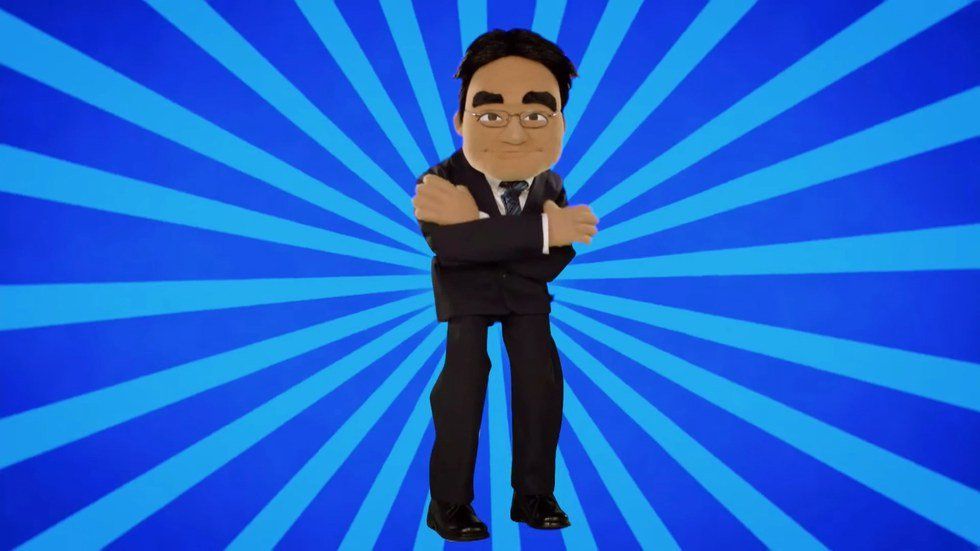It is with great remorse that my first article bears the weight of the death of an icon. Satoru Iwata, CEO of Nintendo, passed away on July 11, 2015. His bile duct, essential in the digestion of food and transportation of bile to the intestines, had been blocked by a tumor. Iwata's condition had been known since his absence from E3 in 2014, but appearances in Nintendo Direct videos made it seem as if he had made a full recovery. However, complications with the tumor have been confirmed as the cause of his death.
Iwata's contributions to the gaming world started nearly 20 years before he ever worked at Nintendo. He started as a programmer for HAL Laboratory, working on popular titles such as Kirby's Dream Land, Earthbound, Balloon fight, Pokemon Gold and Silver and Pokemon Stadium. As a programmer, Iwata focused his efforts on making games more accessible to gamers of all ages. Through years of hard work Iwata became the President of HAL Laboratory, and in 2000 he was offered a substantial role at Nintendo and was then promoted to CEO after just two years.
As CEO of Nintendo, Iwata came out swinging. Rather than focusing on the business end of things, he stayed true to his first passion: development. With the GameCube having been recently released, Iwata had a hand in the development of Nintendo blockbusters such as: "Super Mario Sunshine"; the revamped first-person shooter: "Metroid Prime" and "The Legend of Zelda: The Wind Waker", a charming cell-shaded take on the classic series.
As further evidence of his amazing leadership at Nintendo, Iwata pushed for a higher quality, portable gaming device. In 2004, a curious-looking device called the Nintendo DS was launched worldwide. This new hand-held system allowed players to interact with their games in the traditional manner on one screen while allowing players to actually touch objects, open menus and write messages on a secondary screen. But Iwata still had a trick up the sleeve of his freshly pressed suit.
The introduction of motion controls with the Wii in November of 2006
was, at first, a super smash hit. A true revolution in the gaming industry, nothing like it was seen until
Sony announced the PlayStation Move nearly three years later. With the launch of the Wii, Nintendo took control of the video game market once more. However, less than impressive
performance from the Wii left many gamers feeling cheated, and the "future of gaming" turned out to be a fad as developers failed to produce the experience for
the new hardware that gamers were expecting--and gamers were getting tired of bowling.
The loss of Iwata could prove to be devastating for Nintendo. The fact that Nintendo is struggling to contend with Microsoft and Sony in the video game market is nothing new. Over the years I've watched the Nintendo section shrink at stores like GameStop at a sickening rate. The Wii U is an entire generation behind in the world of HD gaming, and the community's apprehensive attitude of purchasing the Wii U has pushed Nintendo into a slump that they haven't seen since the final years of the N64.
So where will the new CEO take the company when the development of Nintendo's next console, the NX, is already underway? Popular speculation points to a console that can be untethered from televisions and taken wherever gamers go. However, taking into account the recent deal made between Nintendo and DeNA (a mobile game developer based in Japan) and the size, weight and limited range of the Wii U's tablet, this seems unlikely. No matter what the future may hold for Nintendo, Satoru Iwata was the kind of CEO that simply cannot be duplicated. His love of the gaming community and heart-warming laugh will be missed.





















